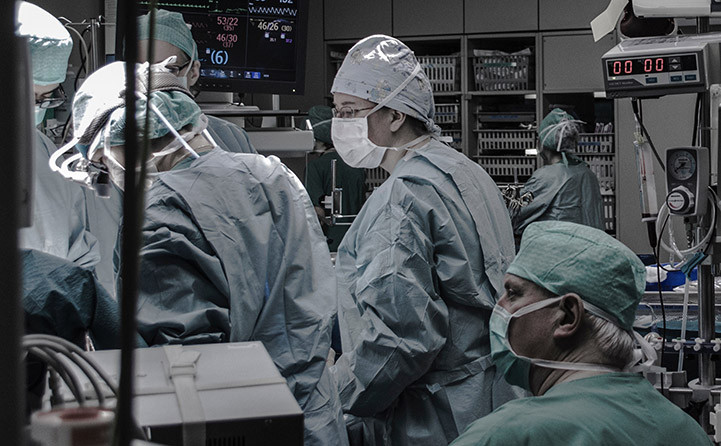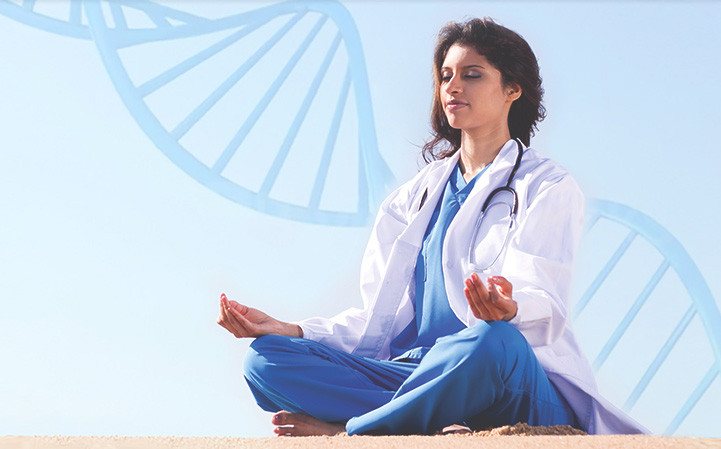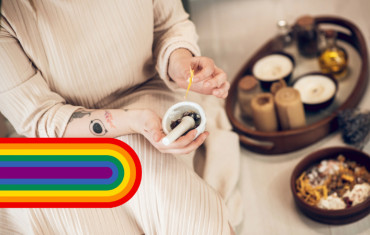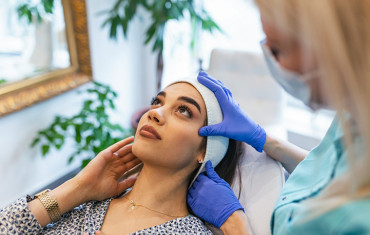“Don’t settle for Happy-ish… Live with Joy, Confidence, and Freedom.” This promise — presented as the title of an Art of Living Foundation (AOLF) workshop — is what drew me to the event, my first conducted by AOLF. During this workshop, attendees explored a curriculum of yoga, breathing exercises, meditation, and practical wisdom, all crafted with the intention of unlocking the freedom within themselves.
During my medical residency and fellowship in gastroenterology, I would work 36 hours straight in a busy inner-city hospital. It was the late 70s. I was new to the USA and carrying an enormous amount of stress.
Building my private practice in the male-dominated field of gastroenterology during the 80s was not easy. On top of working in two hospitals and performing procedures, I was also raising two girls and caring for my extended family. I had no time for myself but accepted the overwhelming stress I carried as a small price to pay and a fact of life for a working female physician.
I never challenged this so-called fact of life until a few years ago, when I was introduced to AOLF. I first experienced the Sudarshan Kriya and the Sahaj Samadhi meditation in a multi-day AOLF workshop. Sudarshan Kriya incorporates specific natural rhythms of the breath which harmonize the body, mind, and emotions. This breathing technique is designed to eliminate stress, fatigue and negative emotions such as anger, frustration, and depression, leaving one calm, yet energized; focused, yet relaxed. Sahaj Samadhi is a meditation technique designed to alleviate the practitioner from stress-related problems, deeply relax the mind and rejuvenate the system. During that workshop, I learned more about the science of breath and the mind-body connection than in five years of medical school.
This program changed my life. It challenged what I thought I knew about meditation, helped me find some peace in my hectic schedule, and taught me how to live in the present moment. Although my workload didn’t change, I noticed that I was able to more skillfully balance my personal and professional lives. My communication skills and interpersonal interactions improved. It became easier to connect with my patients on a deeper level. I became more efficient, more compassionate and an all-around better doctor. To my surprise, I even had colleagues approaching me, yearning to learn how I was still so full of enthusiasm and energy at the end of a busy day.

Application for Today’s Physicians
Physicians practicing in the current healthcare environment are under an enormous amount of pressure and stress. According to the American Foundation for Suicide Prevention, 300-400 physicians die by suicide annually. That’s almost a doctor a day. As mentioned in the April 2016 issue of U.S. News & World Report, physicians have higher rates of depression, divorce, and substance addiction than the general population, and 50-70% of doctors suffer from “burnout syndrome”1. This chronic, unattended stress can lead to emotional exhaustion, depersonalization, and lack of personal achievement that can affect patient care.
Over the years, I’ve seen health care professionals lose their sense of self and purpose due to the intense stress we face. Moreover, many of us are not able to identify the effect stress has on our own well-being, nor are we comfortable seeking help for it. The more invested I became in my own wellness, the more I felt compelled to help others who face the same stresses I do, using the time-tested techniques and tools I learned in the Art of Living Foundation course.
Historically, physicians are caregivers, but we don’t always take good care of ourselves. When we invest in self-care, we typically become better role models for our patients and our families and experience less stress and burnout. When we overlook these priorities, we might become wealthier but may do so at the cost of our health and happiness.
According to AOLF, Dr. Sarita Patel, a physician and the Director of the Palliative Care & Pain Management service at Kingsbrook Jewish Medical Center in New York, said, “In today’s demanding, distracting world, the mind can be stuck in the past or in the future. But happiness is here in the present moment. It cannot be experienced when the mind is vacillating between regretting yesterday or worried about tomorrow. The Art of Living Foundation’s Living Well program is a great way to sharpen the skills for handling the tendencies of the mind.”
I teamed up with Dr. Patel to develop the “Living Well: Self-Care Program for HCPs (Healthcare Professionals),” which introduces simple, yet powerful breathing and meditation techniques to physicians. We work closely with the NYU Langone Medical Institution and AOLF to help physicians and other healthcare professionals learn, through the program, to be free of stress, healthier and happier, earning 20 CME credits in the process.

What is Living Well: Self Care?
The Living Well program is designed for medical doctors, nurses and other healthcare professionals seeking to build a proficient practice for self-care to enrich their quality of life. This program provides techniques and tools that help practitioners manage their emotions, reduce stress, anxiety, exhaustion and compassion fatigue. It is intended to empower practitioners to enhance their physical, mental, spiritual and social well-being upon completion of the program.
The course is designed for physicians, medical students, residents, fellows, osteopath practitioners, nurses, nurse practitioners, allied HCPs and complementary and alternative medical practitioners, offered in various locations throughout the year.
In our experience, the participants who complete the course typically leave with an understanding of science of breath, mind body breath connection, how managing the mind can help bring awareness to and alleviate stress and burnout and optimization of sources of energy.
Source : Endoeconomics Fall/Winter 2017 issue.

































